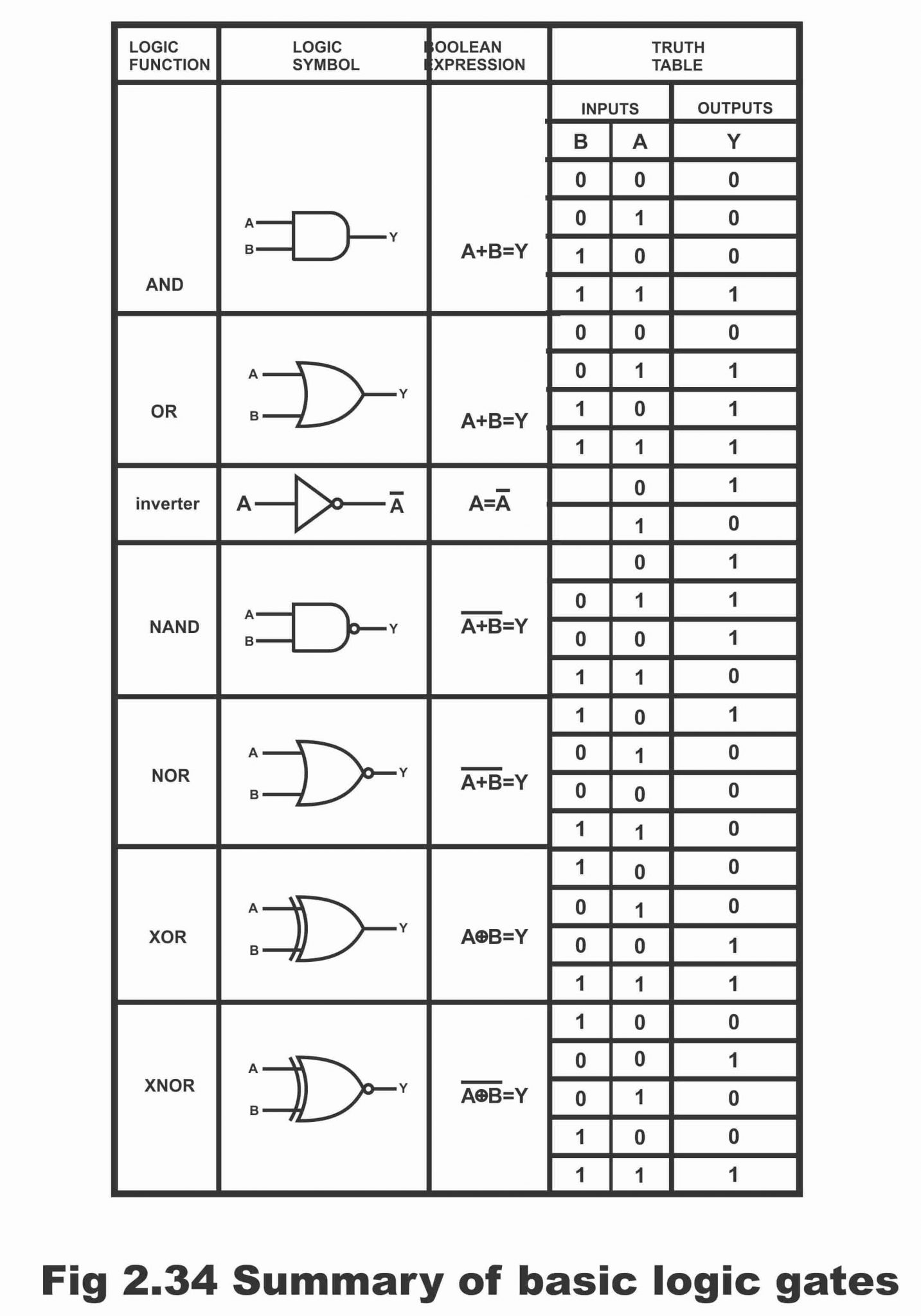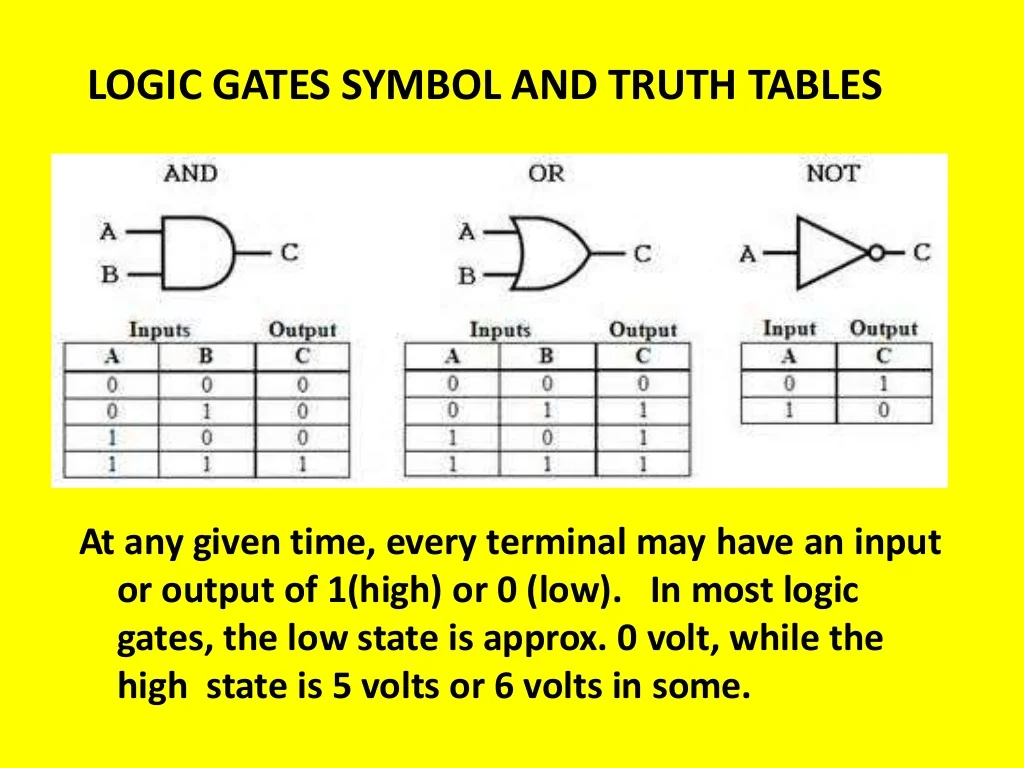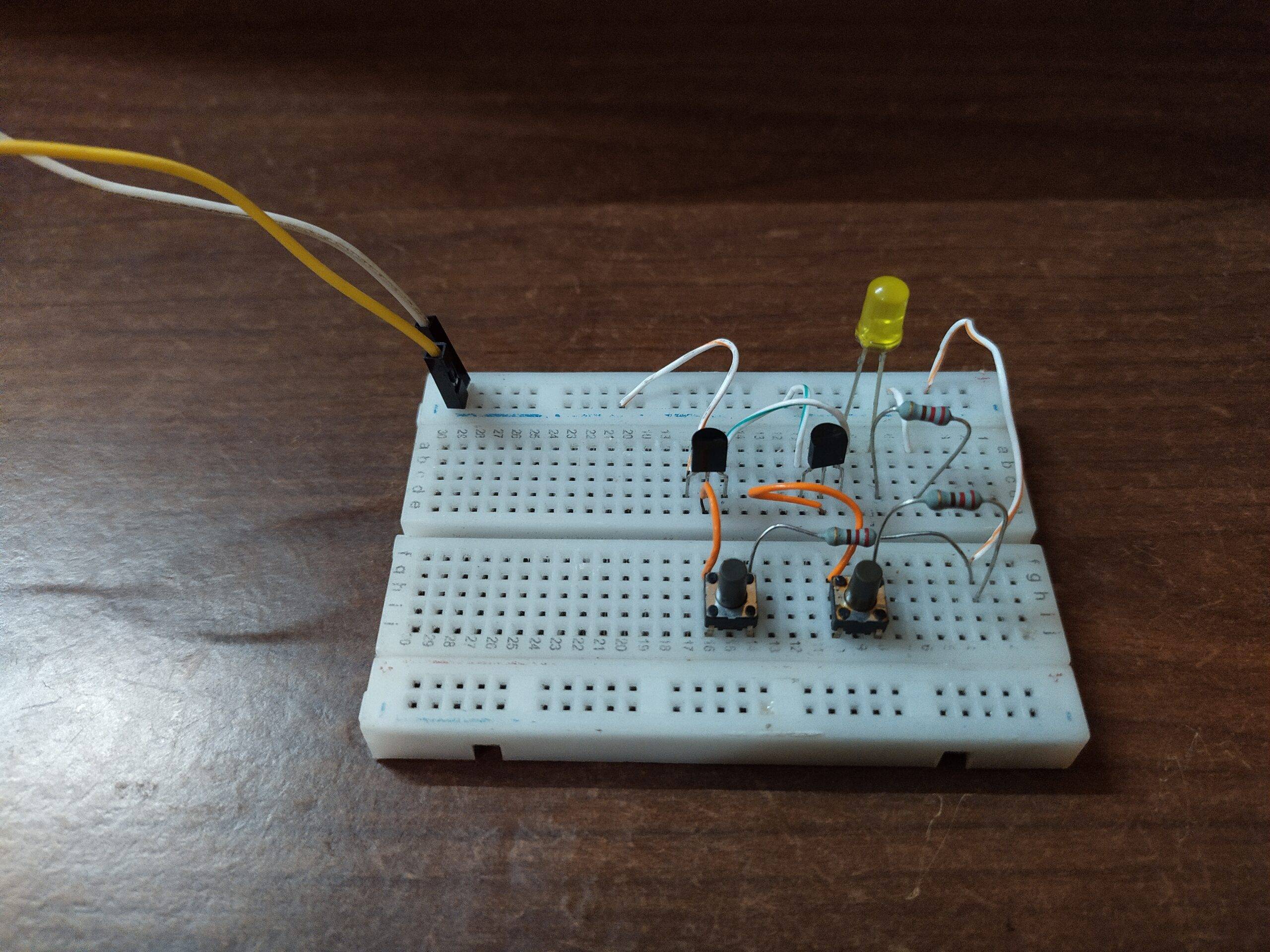Beautiful Work Info About Are Capacitors Used In Logic Gates

Logic Gates PDF Capacitor Dielectric
Unlocking the Secrets of Logic Gates
1. Capacitors in Logic Gates
Ever wondered what makes your computer tick? Well, at the very heart of it all are these tiny things called logic gates. Theyre like the building blocks of digital circuits, making decisions based on inputs and spitting out outputs. And that begs the question: do capacitors, those little energy-storing components, get involved in the logic gate party?
The short answer is: it depends! While capacitors aren't directly inside the most basic logic gate designs (like AND, OR, NOT gates built from transistors), they do play some pretty important supporting roles in the bigger picture of digital circuits and the integrated circuits (ICs) that house logic gates. Think of them as the stagehands that keep the performance running smoothly.
The thing is, the world of electronics is constantly evolving. So, while traditional gate designs might not scream "capacitor!", more advanced designs, especially in memory cells and certain specialized circuits, lean on capacitors for their functionality. These aren't your average, run-of-the-mill logic gates, though. They're more sophisticated implementations that push the boundaries of speed and efficiency.
Essentially, it's a bit like asking if every building has a swimming pool. Most don't, but some fancy ones definitely do! So, let's dive a little deeper into where these capacitors show up in the land of logic.

Types Of Logic Gate And Its Applications Electronic Clinic
The Supporting Cast
2. Smoothing Things Over
One of the most common places you'll find capacitors in relation to logic gates is in power supply decoupling. Imagine your logic gates are like a bunch of demanding little divas. They need a constant, stable flow of power to perform correctly. But power supplies aren't always perfect; they can have fluctuations or "noise."
That's where decoupling capacitors swoop in to save the day! They're strategically placed near the logic gates, acting like tiny power reservoirs. When the power supply dips momentarily, the capacitor quickly discharges, providing that extra burst of energy the gates need. This helps stabilize the voltage and prevents glitches or errors from creeping into your digital circuits.
Think of it like having a backup generator for your house, except much, much smaller and faster. These capacitors ensure a clean and reliable power supply, which is critical for the proper operation of the whole shebang.
Without these decoupling capacitors, logic gates would be more susceptible to noise and voltage variations, leading to unpredictable behavior and potentially crashing the entire system. So, while they may not be in the logic gate, they're essential for its reliable function.
3. Filtering Out the Noise
Another vital role capacitors play is in signal conditioning. In the real world, signals aren't always perfect. They can pick up noise and interference as they travel through the circuit. This noise can distort the signal and cause logic gates to make incorrect decisions.
Capacitors, along with resistors and sometimes inductors, can be used to create filters that remove unwanted noise from the signal. They do this by blocking certain frequencies of the signal while allowing others to pass through. For example, a capacitor can be used to filter out high-frequency noise, leaving a cleaner signal for the logic gate to process.
This filtering action is particularly important in environments with a lot of electromagnetic interference (EMI), such as near motors or radio transmitters. By cleaning up the signal, capacitors help ensure that the logic gates receive accurate information and make the right decisions.
So, if your logic gates are acting up and giving you weird results, it might be worth checking if your signals are clean. A well-placed capacitor could be just the ticket to a more stable and reliable circuit.

Logic Gates And Other Complex At Joseph Head Blog
Advanced Logic
4. Dynamic Logic
While basic logic gates don't typically use capacitors directly, more advanced types of logic, such as dynamic logic, rely on them heavily. Dynamic logic is all about speed and efficiency. It uses capacitors to temporarily store charge, representing the logic state. This allows for faster switching speeds and lower power consumption compared to traditional static logic.
The beauty of dynamic logic is that it can be much faster than traditional static logic. However, it's also more complex to design and requires careful attention to timing and charge leakage. If the charge leaks away too quickly, the logic state will be lost.
This approach is particularly useful in high-performance applications where speed is paramount. Think of it as giving your logic gates a shot of espresso, allowing them to make decisions lightning fast. However, just like with espresso, you need to be careful not to overdo it.
So, while capacitors might not be front and center in every logic gate design, they are definitely a key ingredient in the recipe for high-performance computing.
5. Memory Cells
Another critical application of capacitors in logic-related circuits is in memory cells, particularly in Dynamic Random Access Memory (DRAM). DRAM relies on capacitors to store bits of information. Each bit is represented by the presence or absence of charge on a tiny capacitor. These capacitors are incredibly small and tightly packed together to maximize memory density.
The downside of using capacitors for memory is that they leak charge over time. This means that DRAM needs to be periodically refreshed to maintain the stored information. This refreshing process involves reading the data from the capacitor and rewriting it back to the capacitor to replenish the charge.
DRAM is the workhorse of modern computers, providing the main memory that applications use to store data and instructions. Without capacitors, we wouldn't have the vast amounts of memory that we rely on today.
So, next time you're using your computer, remember that capacitors are quietly working behind the scenes to store your precious data.

It's All About Context
6. The Bigger Picture
Ultimately, whether or not capacitors are "used in logic gates" depends on how you define "logic gate" and what level of abstraction you're considering. At the fundamental transistor level, basic gates don't typically include them. However, when you zoom out and look at the system level, capacitors become essential for ensuring the reliable and efficient operation of logic gates and the circuits they form.
Think of it like asking if bricks are used in a house. While you might not see bricks inside every room, they're essential for the overall structure and stability of the house. Similarly, capacitors are crucial for the overall functionality and performance of digital systems, even if they aren't directly inside every single logic gate.
The interplay between different components, including capacitors, is what makes digital circuits work. Each component has its role to play, and the overall design must be carefully considered to achieve the desired performance.
So, the next time you're marveling at the capabilities of your computer or smartphone, remember that it's not just the logic gates themselves that are doing the work. It's the entire ecosystem of components, including capacitors, that makes it all possible.
7. Looking Ahead
As technology continues to evolve, the role of capacitors in logic circuits is likely to become even more significant. As we push the boundaries of speed and efficiency, we'll need to find new ways to optimize power consumption and reduce noise. Capacitors will undoubtedly play a key role in these efforts.
New materials and fabrication techniques are being developed to create smaller and more efficient capacitors. These advances will enable us to pack more memory and logic into smaller spaces, leading to more powerful and portable devices.
Furthermore, researchers are exploring new ways to use capacitors in novel logic architectures. These new approaches could lead to even faster and more energy-efficient computing.
So, while the relationship between capacitors and logic gates may seem simple on the surface, it's actually a complex and evolving story with a lot of exciting possibilities for the future.

Logic Gates With Transistors On Breadboard Implement
Frequently Asked Questions
8. Q
A: Not usually. These basic logic gates are typically built using transistors. Capacitors are more commonly used in supporting roles like power supply decoupling and signal filtering or in advanced logic designs like dynamic logic and memory cells.
9. Q
A: Logic gates need a stable power supply to function correctly. Power supplies can have fluctuations, so decoupling capacitors act as tiny energy reservoirs. They quickly discharge to provide extra power when needed, stabilizing the voltage and preventing glitches.
10. Q
A: DRAM uses capacitors to store bits of information. Each bit is represented by the presence or absence of charge on a tiny capacitor. Because capacitors leak charge, DRAM needs to be periodically refreshed to maintain the data.